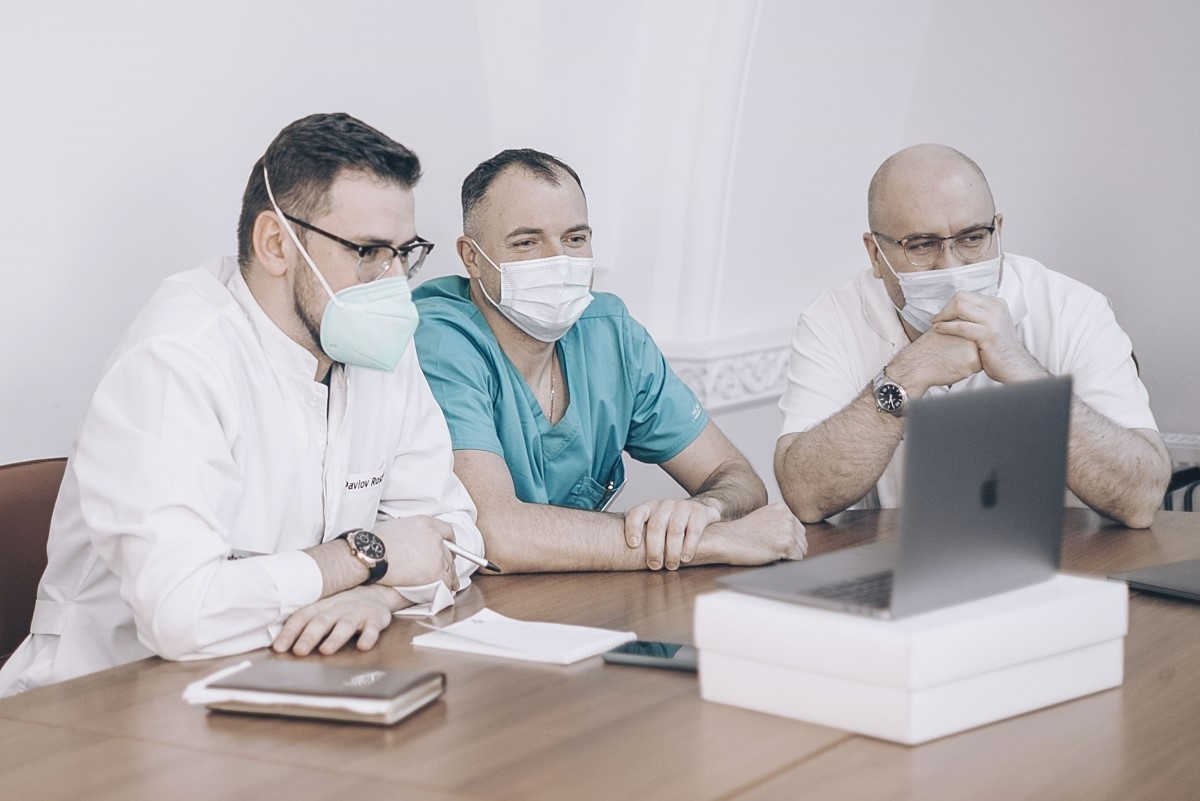Pirogov Clinic at St Petersburg University collaborates with Italian colleagues on cancer research

Leading specialists from the Pirogov Clinic of High Medical Technologies at St Petersburg University and the University Hospital of Perugia (Italy) are beginning to conduct a joint research study of gastric (stomach) cancer.
At the moment, the Pirogov Clinic of High Medical Technologies at St Petersburg University is following patient-centred care principles as the standard for cancer treatment. It is carried out by a multidisciplinary team, including a surgeon, an oncologist, a pathologist and a diagnostic radiographer. The treatment plan takes into consideration the individual patient’s health needs. This enables selecting the most effective treatment method for a particular case that can improve the prognosis.
As part of the collaboration between the two clinics, it has been planned to conduct a joint retrospective study of the prognostic value of morphological and laboratory parameters in the context of gastric cancer treatment. The experts of the Pirogov Clinic have assured that the coronavirus pandemic will not interfere with the joint research.
Rostislav Pavlov, Deputy Director of the Medical Part (Oncology) at the Pirogov Clinic of High Medical Technologies, St Petersburg University, oncologist
The Department of General and Emergency Surgery at the Hospital of Perugia (Italy) under the leadership of Professor Annibale Donini has extensive experience in the treatment of oncological diseases. At the hospital, cancer patients are treated using technologies of minimally invasive surgery, including robotic surgery. Professor Donini’s research interests include surgical treatment of gastrointestinal tumours and treatments of peritoneal carcinomatosis using the technology of hyperthermic intraperitoneal chemotherapy (HIPEC).
Based on GLOBOCAN 2020 cancer statistics, gastric cancer has the fifth highest incidence among the most frequently diagnosed oncological diseases in the world and remains the third commonest cause of death from malignant tumours.
In Russia, gastric cancer incidence and mortality rates match the global trends: over the last 30 years, there has been a decrease in incidence rates for the distal gastric tumours. This became possible due to the development of pharmacology, surgery and oncology and the introduction of early detection programmes.
Russian clinicians are certain that in the future collaboration with Italian colleagues will evolve, particularly in the areas of joint research, reciprocal agreements for hospital-based training of healthcare workers, participation in scientific conferences, and research projects funded by international grants.

